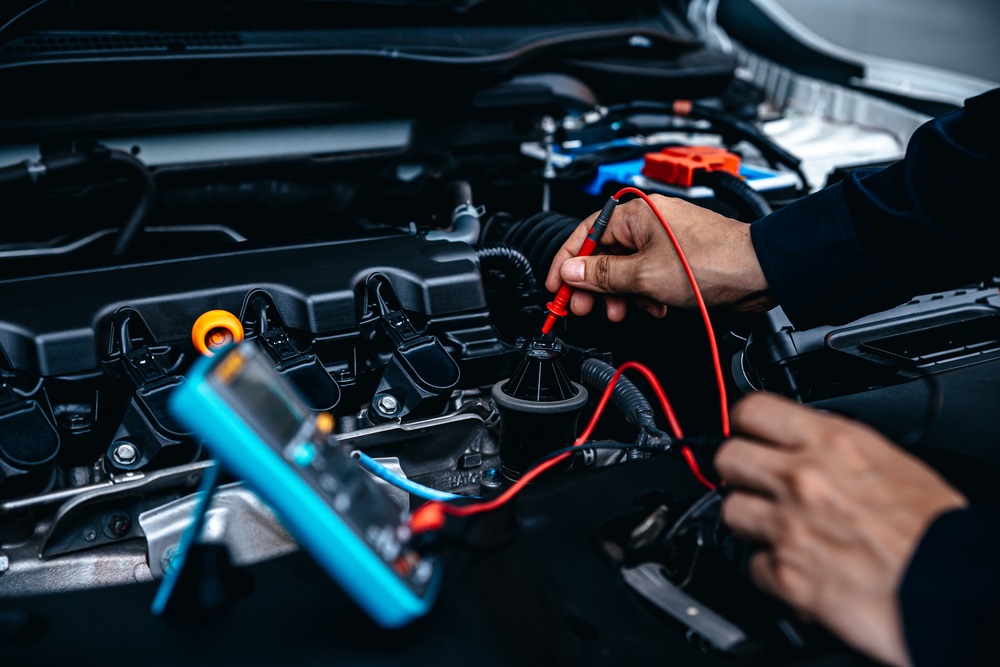Your car battery is a crucial component of your vehicle, providing the necessary power to start the engine and run the electrical systems. As with any mechanical part, regular maintenance is essential to ensure the longevity and optimal performance of your car battery. In this article, we will discuss some maintenance tips for car batteries that can help extend their lifespan and keep them functioning correctly

Keep the battery terminals clean
One of the most critical maintenance tasks for your car battery is to keep the terminals clean. The terminals connect the battery to the rest of the electrical system and are susceptible to corrosion and buildup over time. To clean the terminals, remove the cables and use a wire brush to scrub away any dirt or debris. You can also use a baking soda and water solution to neutralize any acid buildup on the terminals. After cleaning, reattach the cables and ensure they are secure.
Check the electrolyte levels
Most car batteries are lead-acid batteries that contain a mixture of water and sulfuric acid, known as electrolytes. Over time, the electrolyte levels can drop due to evaporation or leakage, reducing the battery’s performance. To check the electrolyte levels, remove the vent caps from the top of the battery and look inside each cell. If the level is low, add distilled water to each cell until the plates are covered. Avoid overfilling, as this can cause the electrolyte to overflow.
Inspect the battery case
The battery case is the outer shell that protects the internal components of the battery. Regular inspections of the case can help identify any damage or leaks that can affect the battery’s performance. Look for cracks, bulges, or discoloration, which can indicate that the battery is leaking acid. If you notice any damage, it is best to replace the battery as soon as possible to avoid any safety hazards.
Keep the battery charged
The most common reason for car battery failure is a lack of charge. If the battery is not charged regularly, it can become depleted and eventually fail. To keep the battery charged, drive your car frequently, especially for longer distances. Short trips can drain the battery without giving it enough time to recharge fully. Additionally, you can use a battery charger to maintain the charge when the car is not in use for an extended period.
Protect the battery from extreme temperatures
Extreme temperatures can affect the performance and lifespan of your car battery. High temperatures can cause the electrolyte to evaporate, while low temperatures can reduce the battery’s ability to produce power. To protect your battery from extreme temperatures, park your car in a garage or shaded area during hot weather. In cold weather, consider using a battery blanket or heater to keep the battery warm.
Avoid overloading the battery
The car battery is designed to handle a specific load based on the size and power requirements of your vehicle. Overloading the battery can cause it to fail prematurely. To avoid overloading, make sure that all electrical systems in your car are functioning correctly and not drawing too much power. Avoid leaving lights or other accessories on when the car is not in use, as this can drain the battery quickly.
Test the battery regularly
Regular testing of the battery can help identify any potential problems before they cause a failure. You can use a voltmeter or multimeter to test the voltage of the battery. A fully charged battery should have a voltage reading of 12.6 volts or higher. If the reading is lower than 12 volts, it may indicate that the battery needs to be charged or replaced.
Maintaining your car battery is essential to ensure that it performs optimally and lasts as long as possible. If you need any expert assistance please call Sydney Express Batteries 1300 300 SEB
